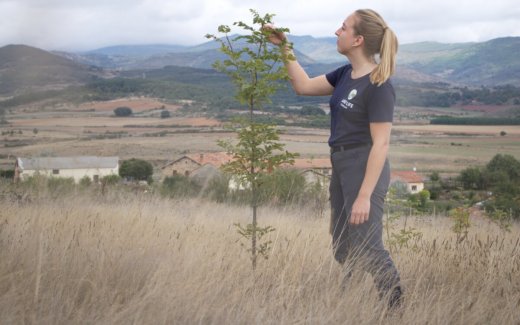Blog
Putting Science into Practice & Winning Prizes Doing It
Josephine Haas is probably best known by everyone who knows Land Life Company from the image of her measuring trees at the top of every presentation we do externally and internally. Josephine is a really wonderful person with a detailed knowledge of forests and many skills that she brings to Land Life, including but not limited to dendrochronology, monitoring, data collection and working on Land Life’s carbon capture model FastTrack.
As of last week, Josephine is also known as the Toekomstboom thesis prize winner of 2021. This prize is awarded for the best student thesis in the field of forest ecology and management, of which the results can be translated into a new application for forest management.
She received the prize in front of the whole company as we were joined in one of our weekly meetings by Frits Mohren, the chair of our Scientific Advisory Board and Dr. Jan den Ouden, Josephine’s master’s thesis supervisor. Frits Mohren presented a foundation called Toekomstboom (Future Tree Foundation) the goal of which is to promote the mission of forest management on a scientific basis and explained that they had joined our call to present a prize for the best student thesis in this field of work. We interviewed Josephine to dig a little deeper into what this means…
“One of the things I do is to set up Site Productivity Assessments, where we look at forests representative for our plantings, collect growth data and look at climate resilience of the trees. We use this data to improve the accuracy of our carbon capture predictions.”
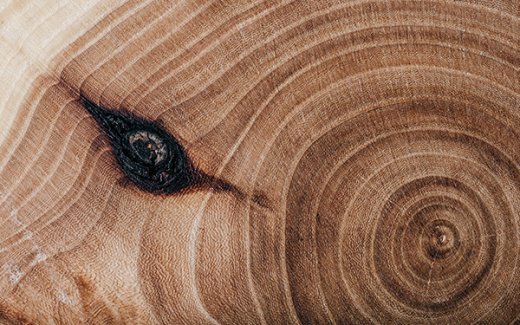
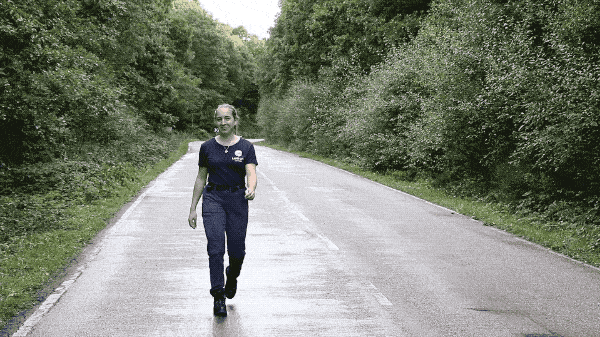
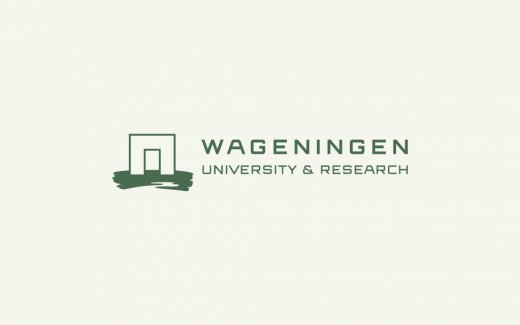
Hello! Firstly, congratulations! Can you first tell me a bit about what you do at LLC?
Hey, yes! I am the Resilience Engineer, so part of the Resilience team. In our team, we bring science into practice. One of our biggest tasks is to calculate carbon capture for our plantings and we try to do it in the most accurate way possible. My specific role here is to keep improving these projections. One of the things I do is to set up Site Productivity Assessments, where we look at forests representative for our plantings, collect growth data and look at climate resilience of the trees. We use this data to improve the accuracy of our carbon capture predictions. For these assessments, we work with universities such as Wageningen University, the University of Arizona and Melbourne University. It is super interesting and inspiring to be able to work with professors all over the world. Amongst other things, I am also involved with the monitoring of our plantings and Secretary of our Scientific Advisory Board.
Wow, such a lot to be getting on with! Can you tell me a bit about your background before you started at Land Life Company?
I studied at Wageningen University, where I studied a master’s in Forest and Nature Conservation. I was really interested in the climate resilience of forests and committed to mitigating climate change.
Can you tell me a little bit more about this prize and what you won?
It’s a yearly prize for the best student thesis in the field of forest ecology and management of both the Netherlands and Belgium, more specifically, a thesis from which the results can be translated into practical application for forest management. Next to the honor of the prize, I won a trophy, a thousand euros and I’m being asked to write an article about my thesis for the forestry community across Belgium and the Netherlands.
“In my thesis, I was exploring the impact of a tree species with nutrient-rich, easily degradable litter, in specific black cherry (Prunus serotina), on oak vitality.”
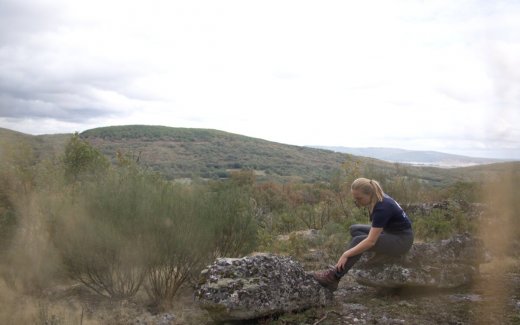
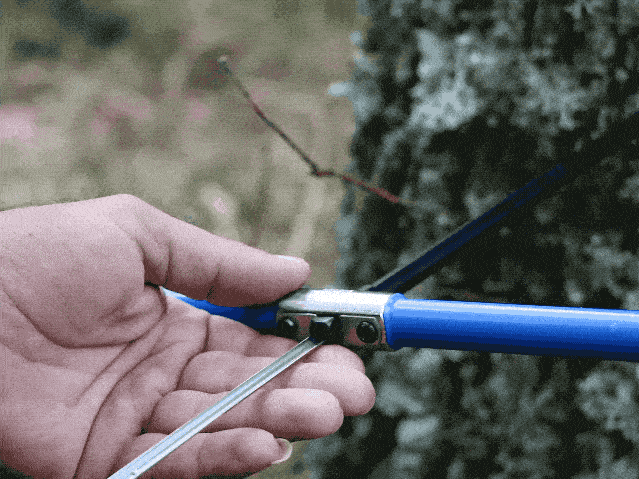

So good, so now the leading question, what did you write your thesis about?
I wrote about one big topic, which is the atmospheric nitrogen deposition that is leading to widespread acidification of forest soils and disturbed nutrient balances, which is really affecting forest vitality and tree growth. Specifically, you see this damage in the beautiful oak forests in the Netherlands and Belgium, where you see quite some oaks dying. In my thesis, I was exploring the impact of a tree species with nutrient-rich, easily degradable litter, in specific black cherry (Prunus serotina), on oak vitality. So the hypothesis was that this litter can improve the forest soils and can therefore improve the vitality and resilience of oak trees. I went into the forest with Jan and we collected tree cores from these oak trees and studied the cores of trees that were growing with the black cherry, and those that were growing without the black cherry and I looked at climate response, resilience, growth performance, etc. Actually, the funny thing is that I did lots of data analysis and climate correlations and all of this sort of stuff, and my hypothesis was debunked. We did not see a clear difference in vitality. However, this does not make it less of a big topic. Prunus is an invasive species, and people make a lot of effort to cut down this species in the Netherlands and Belgium. However, scientific literature suggests that its rich litter can be good for the forest ground. The question is what do we do about the black cherry in the forest at the moment. Do we see it as a pest or do we see it as a friend who we just need to accept in our ecosystem and start seeing its potential value?
So your findings sound very applicable as well…
The findings are applicable in the sense that this was part of a broader project: ‘Correlative Research of Rich-litter Species in Nature-based Forest Management’, financed by the province of North Brabant. So it was actually already a thesis that was helping get results for a very practical and big project.
How does your thesis and consequently this prize relate to your work at LLC?
Through this thesis, I was introduced to the very cool field of dendrochronology, the study of tree rings. I used this methodology to study the growth of oaks over the years and the impact of climate change. I was introduced to Land Life by Ute, my other thesis supervisor, and when I started at Land Life they wanted to do a Site Productivity Assessment in Spain, using this dendrochronological approach. As I had this really specific skill from my thesis I stepped in and started leading this project. In the first week when I was hired I went to Spain for a few weeks to do the fieldwork and collect the tree cores. Since then, I have been leading all the Site Productivity Assessments at Land Life. My skills in this field are really applicable to my job at the moment.
Amazing, obviously it is such a big thing for you work-wise and also really underlines the skills you bring to Land Life. I do think it’s also important to ask one final question, what does this prize mean to you personally?
To me, I am first of all really honored, but what I really like about this prize is that it focuses on the practicality of my research, which is also what I love about my job at the moment. What I loved about writing this thesis is that it was used in a practical project and now with my job, I am still practicing science by setting up super cool studies with universities but these results are used in practice immediately. Our findings are used to improve our plantings and the accuracy of our carbon capture predictions, while also being in the interest of the universities. Also, it just enhances our knowledge about trees within the company and this is something that really motivates me a lot. It’s really nice and I really like it.
I would like to thank Jan den Ouden and Ute Sass-Klaassen for supervising my thesis, it was amazing to work with them. Of course, also many thanks towards the Toekomstboom Foundation, the jury and the sponsors of the prize money KNBV, BOS+ and ProBos.
